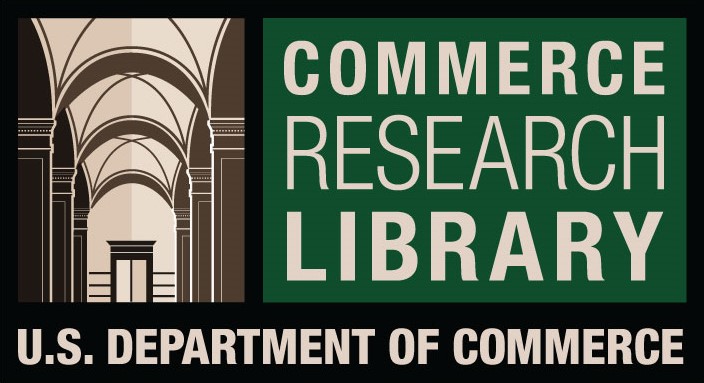Nurturing Interpersonal Trust in Knowledge Sharing Intention towards Industry 4.0
DOI:
https://doi.org/10.61841/gypnqr10Keywords:
knowledge management;, knowledge sharing intention;, interpersonal trustAbstract
Knowledge management has captured the attention of researchers and practitioners. Knowledge sharing intention is the important element of knowledge management. Therefore, the purpose of this study is to examine the effect of interpersonal trust on knowledge sharing intention. Data was collected through self-administered questionnaires at higher institution education. The data was analyzed using Statistical Package for Social Science (SPSS) version 24. The findings show that interpersonal trust plays pivotal roles in promoting knowledge sharing intention. The implications of these findings are thoroughly discussed in the study.
Downloads
References
[1] Buvik, M. &Tvedt, S. D. (2017). The influence of project commitment and team commitment on the relationship between trust and knowledge sharing in project teams.Project Management Journal, 48(2), 5-21
[2] Centobelli, P., Cerchione, R.,& Esposito, E. (2017). Knowledge management in startups: systematic literature review and future research agenda. Sustainability, 9, 361-369
[3] Cunningham, J., Seaman, C.,& McGuire, D. (2016). Perceptions of knowledge sharing among small family firm leaders: A structural equation model. Family Business Review, 30(2), 160-181
[4] Elianto, W., &Nury, A. W. (2016). Building knowledge sharing intention with interpersonal trust as a mediating variable. JurnalManajemenTeknologi, 15(1), 67-76
[5] Fukuyama, F. (1995), Trust: The Social Virtues and the Creation of Prosperity, The Free Press, New York, NY.
[6] Ozlati, S. (2015). The moderating effect of trust on the relationship between autonomy and knowledge sharing: A national multi-industry survey of knowledge workers. Knowledge and Process Management, 22, 191– 205
[7] Hislop, D. (2005), Knowledge Management in Organizations, A Critical Introduction, Oxford University Press, Oxford.
[8] Holste, J. S. & Fields, D. (2010). Trust and tacit knowledge sharing and use. Journal of Knowledge Management, 14(1), 128-140.
[9] Hsu, M. H., & Chang, C. M. (2014). Examining interpersonal trust as a facilitator and uncertainty as an inhibitor of intra‐organizational knowledge sharing. Information Systems Journal, 24(2), 119-142.
[10] Ipe, M. (2003). Knowledge sharing in organizations: a conceptual framework. Human Resource Development Review, 2(4), 337-59
[11] Jain, K. K., Sandhu, M.S., & Goh, S.K. (2015). Organizational climate, trust and knowledge sharing: Insights from Malaysia. Journal of Asia Business Studies, 9(1), 54-77
[12] Khari, C., & Sinha, S. (2017). Impact of workplace spirituality on knowledge sharing intention: A conceptual framework. Journal of Human Values, 23(1), 27-39
[13] Lee, J. (2018). The effects of knowledge sharing on individual creativity in higher education institutions: Socio technical review. Administrative Science, 8(21), 1-16
[14] Lee, P., Gillespie, N., Mann, L. & Wearing, A. (2010). Leadership and trust: their effect on knowledge sharing and team performance. Management Learning, 41(4), 473-91
[15] Mayer, R.C., Davis, J.H. &Schoorman, F.D. (1995). An integrative model of organizational trust. Academy of Management Review, 20(3), 709-34.
[16] Nonaka, I. (1990). Redundant, overlapping organization: A Japanese approach to managing the innovation process. California Management Review, 32(3), 27-38.
[17] Nonaka, I. & Takeuchi, H. (1995). The Knowledge-creating Company: How Japanese Companies Create the Dynamics of Innovation, Oxford University Press, New York, NY.
[18] Park, M. J., Lambazar, T. D. U., & Rh. J. J. (2015). The effect of organizational social factors on employee performance and the mediating role of knowledge sharing: Focus on e-government utilization in Mongolia.
Information Development, 31(1), 53-68
[19] Pee, L., & Min, J. (2017). Employees’ online knowledge sharing: the effects of person-environment fit. Journal of Knowledge Management, 21(2), 432-453.
[20] Mooradian, T., Renzl, B., &Matzler, K. (2014). Who trusts? Personality, trust and knowledge sharing.
Management learning, 37(4), 523-540
[21] Renzl, B. (2008). Trust in management and knowledge sharing: the mediating effects of fear and knowledge documentation. International Journal of Management Science, 36(2), 206-220
[22] Rutten, W. Blaas-Franken, J., & Martin, H. (2016). The impact of (low) trust on knowledge sharing. Journal of Knowledge Management, 20(2), 199-214.
[23] Sekaran, U., &Bougie, R. (2013). Research Methods for Business: A Skill Building Approach. New Delhi: Wiley India.
[24] Koohang, A., Paliszkiewicz, J., &Goluchowski, J. (2017). The impact of leadership on trust, knowledge management, and organizational performance: a research model. Industrial Management and Data Systems, 117(3), 521-537.
[25] Tella, A. (2015) The factors determining knowledge sharing intention among information professionals in Nigeria: a pathmodel analysis. Regional Journal of Information and Knowledge Management, 1(1),1-19
[26] Teh,P. L., & Yong, C. C (2011). Knowledge sharing in IS personnel: Organizational behavior’s perspective. Journal of Computer Information Systems, 51(4), 11.
[27] Weir, D., & Hutchings, K. (2005). Cultural embeddedness and contextual constraints: knowledge sharing in Chinese and Arab cultures. Knowledge & Process Management, 12(2), 89-98.
[28] Wang, H. K., Tseng, J. F., & Yen, Y. F. (2014). How do institutional norms and trust influence knowledge sharing? An institutional theory. Management Policy and Practices, 16, 374-391
Downloads
Published
Issue
Section
License

This work is licensed under a Creative Commons Attribution 4.0 International License.
You are free to:
- Share — copy and redistribute the material in any medium or format for any purpose, even commercially.
- Adapt — remix, transform, and build upon the material for any purpose, even commercially.
- The licensor cannot revoke these freedoms as long as you follow the license terms.
Under the following terms:
- Attribution — You must give appropriate credit , provide a link to the license, and indicate if changes were made . You may do so in any reasonable manner, but not in any way that suggests the licensor endorses you or your use.
- No additional restrictions — You may not apply legal terms or technological measures that legally restrict others from doing anything the license permits.
Notices:
You do not have to comply with the license for elements of the material in the public domain or where your use is permitted by an applicable exception or limitation .
No warranties are given. The license may not give you all of the permissions necessary for your intended use. For example, other rights such as publicity, privacy, or moral rights may limit how you use the material.









